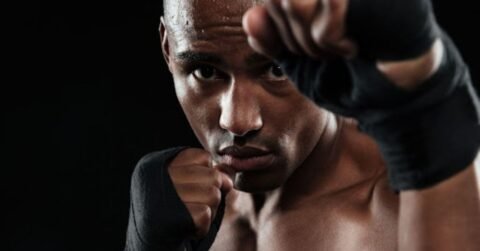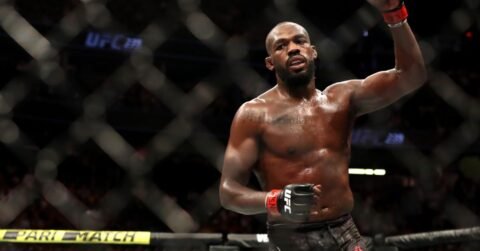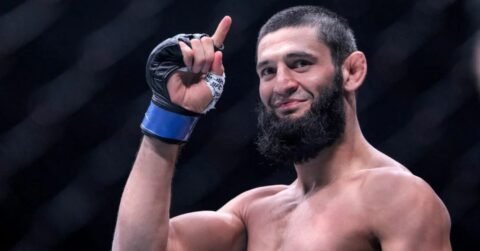I had the pleasure of chatting with BJJ black belt Ashley Bendle. Ashley has a wealth of experience in the discipline. She is very open and honest and a great human being. I had an amazing time chatting with Ashley and I hope you enjoy it.
Kieran – So let’s start from the beginning, what got you into BJJ?
Ashley – I actually started BJJ just before my 5th birthday and the sport was never meant for me, my parents actually put my brother in it. At the time I was slightly too young, but my coach, Chris, said let’s try her out, and I just took to it and turned out to be quite a natural at it and really enjoyed it. So from then it basically just became something I loved and I’ve never looked back.
Kieran – Did your brother remain in BJJ?
Ashley – He did for a few years, but quit around his exams. He then jumped in and out of the sport for a while but is currently doing a PhD so hasn’t trained in a few years.
Kieran – What is it like being 5 years old starting BJJ and trying to take in all the technicality of it? Was that something you got to grips with quite quick or did it take some time to process at that age?
Ashley – When I started BJJ was quite new in the UK, so a lot of what was taught was extremely basic compared to what is taught now. My coach also taught a lot through games and more learning through enjoyment, which is something I have definitely carried over into my own coaching of kids. I genuinely think that kids learn way easier than adults, so they often pick up on the technical bits a lot quicker, but they’re also not afraid to get it wrong and fail, because they know they can just try again. I remember when I was younger, I didn’t care about what I was actually doing I just knew I enjoyed it and I found it fun, and I think that helped me pick up on things a lot easier than I would have if I started as an adult.

Kieran – What benefits did BJJ give you at that age?
Ashley – I think it definitely gave me a lot more self-confidence growing up in the sport, I always knew what I was capable of so I never had to doubt if I could do something in everyday life. I think it also just allowed my energy to be put into something constructive, rather than ending up doing something and getting in trouble for it. Obviously, there are physical benefits but at the time I never knew, but they’ve definitely aided me now and gave me a great base of fundamental skills that benefited me in different sports. I think the benefits looking back are countless, and I know I wouldn’t be who am I without being put in the sport at such a young age.
Kieran – That’s amazing so did you compete in junior competitions?
Ashley – I did, it actually took me a few years to compete after starting training, I half wasn’t interested and half didn’t think I was good enough. But between my coach and parents, they encouraged me and eventually, I gave it a go and loved it. Even when I was competing though I would sit on the side of the mats playing on my Nintendo DS, and just jump on for a match then go back to my game after it. Every so often my parents and coach bring that up haha.
Kieran – I love that. It shows the innocence of a young child but also in a way shows confidence. How long was it before you started to focus solely on competing and leave the DS at home?
Ashley – It truly is haha. I think it was when I started to realise it’s what I wanted to do as a career and could make it work, which wasn’t until my later teen years. But I started taking it more seriously, probably not as serious as some would expect though when I started doing adult categories at 13/14. I think doing that forced me into taking it more seriously as there were obviously higher risks and rewards, but it wasn’t until I was 17 and went to the Abu Dhabi world pro, did I truly realise how much I loved competing and that I really wanted to be able to compete, teach and train full time. That’s really when I started to make sure I was setting myself up for the best chances, which was hard considering I was studying A levels at the time, but I had enough support to make it work.

Kieran – I can imagine going to Abu Dhabi would have been a crazy experience for you. How did you manage to balance everything at that time? Say if someone was struggling to find the time to train whilst also studying, how did you manage that?
Ashley – It was tough, there were a lot of days where I questioned if I could do it all. I think a major part from me was I prioritised being able to make training and competing but knew I had to get my work and assignments done and that I had no choice in that. So I would happily give up lunch breaks, and often between training sessions and after BJJ classes to do school work. I also had people around me that made sure that I got everything done, and if I was lagging behind with school then I knew I’d not be able to train, and I had to acknowledge that school was more important even if I didn’t think at the time it was. So I just think overall finding time was more about balancing, and even spending whole days just doing homework, I remember sitting writing assignments on Sundays after training all week and competing on Saturdays, just to be able to train that week as many times as I could.
Kieran – Balance and sacrifices made it work for you. So you started at 5 years old, can you tell when you earned your black belt and what that overall experience was like?
Ashley – I got it when I was 22, so 17 years after starting BJJ. I actually cried a lot when I got my black belt, it was an amazing moment, it completed a major part of the journey, as I’d obviously spent so long working my way through the ranks. But I also instantly realised it was just the start of a bigger challenge and was more of a new chapter considering what I want to achieve.
Kieran – 17 years? So you did it properly, no shortcuts. It must have been a great feeling to achieve your black belt after so long.
Ashley – Yep, I obviously went through all the kid’s grades but definitely no shortcuts. The only belt I never had was adult white, but I did compete in that division as a teen but got my blue belt when I turned 16. Other than that I spent my time at each belt, I actually spent 3 and a half years at purple to try and get as much competition experience as possible and not to rush through the belts. Ash Williams who’s one of my coaches/teammates, done the same so I was on a similar timeframe as him, and it worked out for him.
Kieran – That’s amazing dedication and your passion really shows through. So one thing that I want to chat about this year for the MMA UK BJJ Show is equality in BJJ, especially among women. Have you ever, in your BJJ journey, been subject to any kind of mistreating?
Ashley – Honestly I’ve been really lucky, I’ve never been mistreated but I also put this down to the coaching staff at the gym, and the people I train with. I know if at any point I felt mistreated or uncomfortable I could approach one of the coaches even if it was about another coach, and they would help me with the situation, but I also acknowledge that I am lucky to have an amazing relationship with the head coaches and feel comfortable approaching them about anything. I know a lot of women aren’t this lucky, and I’ve heard so many stories in which this isn’t the case, and unfortunately, things have escalated to a point when the women has been severely mistreated or felt so uncomfortable they have left the sport due to various situations. I’ve experienced my fair share of sexism in the sport but never where I have felt uncomfortable to be on the mats, but I know that my team is super supportive and inclusive which some often are not.
Kieran – It’s incredible that you have a support system like that and coaches that are very supportive. I have brought this up because we know it exists and with a discipline like BJJ, it shouldn’t exist. It shouldn’t exist at all across any discipline but in jiu-jitsu where it teaches you respect, humbleness, to be disciplined yourself, it shouldn’t exist. Thank you for answering that question.
Let’s talk about coaching. How long have you been doing that?
Ashley – I started assistant coaching when I was about 13 because there were very few other teenagers in the class so it made more sense for me to coach, but I started to lead kids classes about 17. I spent a while shadowing Chris through our fundamentals program, but when I was 20 I started teaching at one of our affiliate clubs, where I taught until last year, but I have since switched back to our main academy to head up some kids programs. This was to just allow me more flexibility in training and competing.

Kieran – How has it been not being able to pass on your knowledge and skills to the kids because of the current situation?
Ashley – It’s horrible, we’re always getting messages saying how much the kids are missing it and I know all the coaches are missing teaching them. Hopefully, they’ll be able to get back on the mats soon and they’ll pick it up like they never had anytime off. I can’t wait to start seeing them all progress and just grow as people.
Kieran – That first day back is going to be amazing for everyone. Coaches, kids and parents. We spoke briefly about competition earlier but who has been the toughest competitor you’ve faced?
Ashley – Oh wow there’s been so many, UK based athlete is definitely Nina who trains out of RGA we’ve had a fair few matches over the years, otherwise I’ve had the pleasure to share the mats with many world’s medalists which is always tough, and some of the newer black belts coming through like Anna Rodriguez but I know they’re going to be my competition for many years to come so I’ve just learnt to enjoy the ride.

Kieran – There are so many amazing jiu-jitsu practitioners in the UK and otherwise, that it must be difficult to just pick one. You’re sponsored by Tatami Fightwear and you have a lot of work on your Instagram with them. How did that sponsorship come about and what’s it like to be sponsored by quite a prestigious fight wear company like that?
Ashley – I love representing them, they’re amazing. I’m lucky to be able to work closely with the brand and the owners. I think a lot of the sponsorship came from them being fairly new at the time when I started to represent them and me being local to them, they’re based about 10 minutes from my house so it was ideal. I just remember as I started to medal at bigger competitions and continued being consistent with medalling, my coach wanted to look at getting a sponsor to help me, and Tatami just so happened to be the perfect fit, and continue to be.
Kieran – Amazing I’m happy that worked out for both of you. Ashley, you have been incredible and I’m thankful that you’ve taken the time to chat with me. So last question. What can we expect from you and where would you like your BJJ journey to go in the future?
Ashley – No problem. Covid allowing I’ll be back on the competition scene as soon as I can be, maybe this year. Hopefully, I’ll be able to do world’s and the main aim is to medal and win there, but maybe they’ll be some nogi comps too and possibly some sub only. We have spoken about ADCC and trying to qualify for that but I guess we’ll wait and see.
Kieran – Whatever you decide to do, I can’t wait to see it. Good luck with everything and thank you once again for your honesty and kindness.
Ashley – Thanks for talking to me.



 Subscribe
Subscribe




